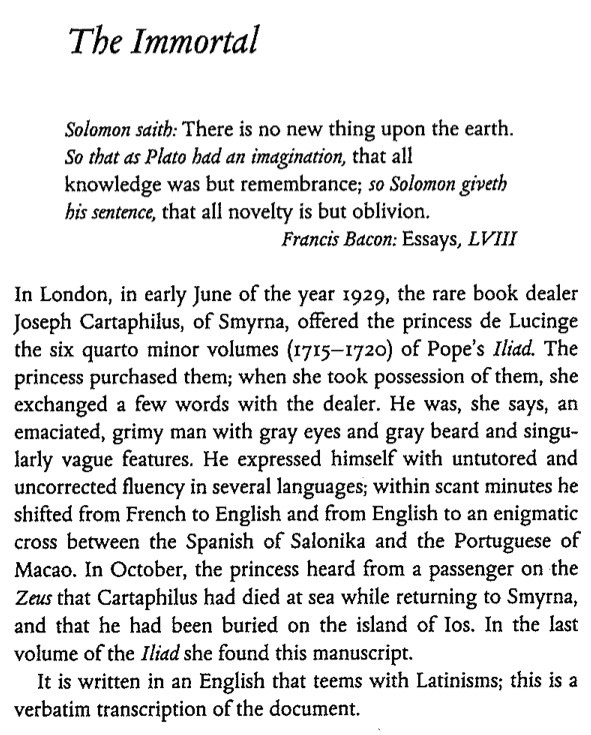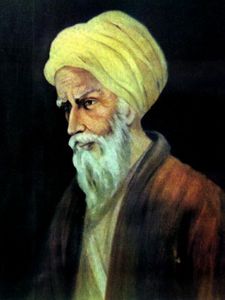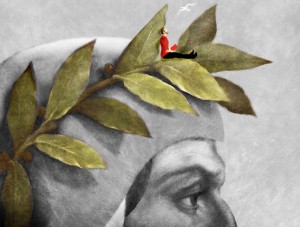May 5, 2014 at 10:07 am

A recent study conducted by UCLA researchers Daniel Oppenheimer and Pam Mueller found that traditional handwritten notes are far more effective than notes taken on a laptop or other electronic device. In their experiment, students took notes by hand or on a laptop while watching a video lecture. They were then quizzed, “either after 30 minutes of difficult problem solving or a week’s time”. The students who took notes by hand outperformed those who took notes on a laptop. The researchers believe that the desire to write down the lecture word-for-word without analyzing the content is what led laptop note takers astray.
To many people, a laptop is the clear choice of note-taking device because it allows them to take down more of what the speaker is saying. But according to UCLA researchers Oppenheimer and Mueller, the temptation to capture everything we’re listening to might actually be the biggest issue with typed notation.
“We don’t write longhand as fast as we type these days, but people who were typing just tended to transcribe large parts of lecture content verbatim,” Mueller tells The Atlantic’s Robinson Meyer. “The people who were taking notes on the laptops don’t have to be judicious in what they write down.”
In other words: Transcribing on a laptop in real-time may lead to verbatim notes, but doing so means you spend less time processing the lecture, and more time focusing on typing.
Read the full article here and let us know if you agree or disagree.
By vpriest
|
Posted in Uncategorized
|
April 22, 2014 at 10:19 pm

College classes and living on one's own for the first time is stressful. Imagine having to cope with a chronic illness at the same time.
In a recent article published in Cognoscenti, Laurie Edwards goes over the challenges that face college students suffering from chronic illness in today's tertiary education system. While services for students with accommodations for students with visible disabilities are becoming increasingly available, chronic illnesses like Crohn's Disease and Lupus are often invisible and little understood by the general public. Suffers of chronic illness, who are increasing, are often forced to miss long periods of class. Accommodating for this has been surprisingly difficult for many college campuses. The author writes:
How do we accommodate students who can’t make it to class for longer stretches, have frequent medical appointments or disruptive hospital stays, or whose medications may make them drowsy or fatigued even when they are present?
Read More »
By vpriest
|
Posted in Uncategorized
|
April 22, 2014 at 3:54 pm
For the first time, CC202 is studying Jorge Luis Borges, and his story The Immortal. Here is a short excerpt from the introduction of our edition, with an epigraph by Francis Bacon:
 A recent article of interest discusses a stolen first edition of Borges' first poems. It was supposedly returned to Argentina's National Library, but there are suspicions that it may have been... the wrong copy. A mystery!
A recent article of interest discusses a stolen first edition of Borges' first poems. It was supposedly returned to Argentina's National Library, but there are suspicions that it may have been... the wrong copy. A mystery!
By mdimov
|
Posted in Academics, Announcements, Curriculum, Great Questions
|
Tagged Borges, CC202, Francis Bacon, Jorge Luis Borges, The Immortal
|
April 19, 2014 at 6:20 pm
In the past year, Great Britain's National Health Service has launched a new "Books on Prescription" program for people suffering from anxiety, depression, and other behavioral health problems. As an alternative to traditional pharmaco- or psycho- therapy, doctors are now recommending self-help books to patients to equip them with the skills to lift themselves out of their illnesses. Read More »
By njanes
|
Posted in Uncategorized
|
April 18, 2014 at 11:14 am

Egyptian scientist, Ibn al-Haytham (AD 950-1040), is hailed as the father of modern optics and experimental physics. Also, he's apparently one of the first to make a statement on scientific methodology:
The seeker after truth is not one who studies the writings of the ancients and, following his natural disposition, puts his trust in them, but rather the one who suspects his faith in them and questions what he gathers from them, the one who submits to argument and demonstration and not the sayings of human beings whose nature is fraught with all kinds of imperfection and deficiency. Thus the duty of the man who investigates the writings of scientists, if learning the truth is his goal, is to make himself an enemy of all that he reads, and, applying his mind to the core and margins of of its content, attack it from every side. he should also suspect himself as he performs his critical examination of it, so that he may avoid falling into either prejudice or leniency.
Read the original article here.
By vpriest
|
Posted in Great Personalities
|
Tagged history, Science
|
April 15, 2014 at 3:18 pm
This semester, CC102 has delved into the Daodejing and all the wonderful concepts it illuminates.
Andrew Klufas, a student in Professor Nelson's class, sent in an video of interest: What's The Brightest Thing in the Universe? It's creator, Vsauce, makes popular and informative videos on Youtube.
Here, we see how Core Science meets Core Humanities:
There is Yin and Yang again... the brightest things in the universe, quasars, are caused by the darkest things in the universe, black holes. The process that unshackles the most light is caused by the thing that best imprisons it.
The full video is certainly worth a watch:
Thoughts? Comment below!
By mdimov
|
Posted in Curriculum, Great Ideas, video
|
Tagged astrophysics, black hole, bright, CC102, Daodejing, dark, quasar, Science, star, Vsauce, yin and yang
|
April 14, 2014 at 6:52 pm
Please read Rod Dreher's piece, How Dante Saved My Life, for the March/April 2014 issue of The American Conservative. It is a beautiful reminder that the works on a canonical reading list are not only politically and philosophically applicable, but are often also spiritually and personally invaluable. Read More »
By njanes
|
Posted in Uncategorized
|
April 13, 2014 at 10:46 pm

What do black holes, the mysterious cosmological matter-sucking bodies at the centers of galaxies, have in common with yin and yang, the ancient Chinese philosophical concept? Check out this vid.
By njanes
|
Posted in Uncategorized
|







